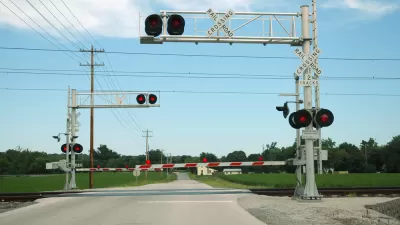It was hailed as the solution to America's infrastructure spending deficit, but the influx of private funds has come to halt along with the failure of banks and the huge investment from the Recovery Act. Plus, many schemes aroused taxpayers wrath.
"Privatization, the selling of public airports, bridges, roads and the like to private investors, looks like a boom that wasn't.
What happened? The financial crisis, for starters. The easy money that Wall Street was counting on to finance its purchases has largely disappeared. Then the Obama administration unintentionally damped interest with its $787 billion economic stimulus package, a windfall that local governments are now racing to spend.
Now the deals are falling apart. In April, a much-anticipated $2.5 billion plan to privatize Midway Airport in Chicago collapsed after a group of investors was unable to obtain debt financing. The deal, which had been in the works for four years, was to have been the first in a Federal Aviation Administration project that would have allowed up to five major airports to move into private hands.
The biggest was the failure last fall of the largest deal proposed to date - a $12.8 billion lease of the Pennsylvania Turnpike. Postmortems into that failed effort show that privatization advocates vastly underestimated the political opposition the deal would stir up in the Pennsylvania legislature.
Late last month plans to privatize "Alligator Alley," a 78-mile stretch of Florida highway collapsed when no bidders showed up. The failure has had a ripple effect - in Mississippi, state officials have pushed back the bidding schedule for a new 12-mile toll road
The stimulus money, as well as other infrastructure money promised by Congress, has provided temporary relief for cash-poor municipalities.
Chicago Sun Times: City could have gotten nearly $1 billion more for parking meters, report says:
"Chicago's 36,000 parking meters were worth nearly twice as much as the $1.15 billion Mayor Daley got when he rammed through a 75-year lease in a few days without analyzing what the system was worth, the city's inspector general has concluded. A steep schedule of rate hikes and operational problems have turned the deal into a nightmare for motorists.
Inspector General David Hoffman says the lease was a financial disaster as well."
Thanks to Transportation For America blog
FULL STORY: Politics and the Financial Crisis Slow the Drive to Privatize

Maui's Vacation Rental Debate Turns Ugly
Verbal attacks, misinformation campaigns and fistfights plague a high-stakes debate to convert thousands of vacation rentals into long-term housing.

Planetizen Federal Action Tracker
A weekly monitor of how Trump’s orders and actions are impacting planners and planning in America.

In Urban Planning, AI Prompting Could be the New Design Thinking
Creativity has long been key to great urban design. What if we see AI as our new creative partner?

King County Supportive Housing Program Offers Hope for Unhoused Residents
The county is taking a ‘Housing First’ approach that prioritizes getting people into housing, then offering wraparound supportive services.

Researchers Use AI to Get Clearer Picture of US Housing
Analysts are using artificial intelligence to supercharge their research by allowing them to comb through data faster. Though these AI tools can be error prone, they save time and housing researchers are optimistic about the future.

Making Shared Micromobility More Inclusive
Cities and shared mobility system operators can do more to include people with disabilities in planning and operations, per a new report.
Urban Design for Planners 1: Software Tools
This six-course series explores essential urban design concepts using open source software and equips planners with the tools they need to participate fully in the urban design process.
Planning for Universal Design
Learn the tools for implementing Universal Design in planning regulations.
planning NEXT
Appalachian Highlands Housing Partners
Mpact (founded as Rail~Volution)
City of Camden Redevelopment Agency
City of Astoria
City of Portland
City of Laramie



























